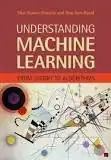This question was inspired from What advantage humans have over computers in mathematics? and the answer of Brendan McKay, part of which is quoted in the below:
The day will come when not only will computers be doing good mathematics, but they will be doing mathematics beyond the ability of (non-enhanced) humans to understand. Denying it is understandable, but ultimately as short-sighted as it was to deny computers could ever win at Go.
The question and the answer got 42 and 35 votes, respectively, so at least a part of the community acknowledges the importance of AI in the future of mathematics or even the possibility that it will eventually replace mathematicians as they will develop mathematics much faster than humans will do.
Recently, machine learning algorithms are getting better at lower-level tasks such as computer vision, motion control and speech recognition, thanks to deep learning, reinforcement learning and massive amount of data available online, which boosted the power of supervised learning. However, without more sophisticated unsupervised learning algorithm (such as adversarial networks as discussed here), higher-level tasks such as reasoning are still difficult, and this is where the research is actively done right now.
Most parts of the mainstream ML don't require sophisticated mathematics, and traditionally such areas haven't attracted many mathematicians. However, since ML will eventually achieve human-level AI, which will develop every areas of math like a far-reaching theory, ML should be an interest for mathematicians. (There is nothing that prevents mathematicians from working on any problem whose solution may require non-purely-mathematical process. For example, the proof of four color theorem used a computer, and experimental mathematics has been gaining popularity.) I'm not proposing mathematicians to construct a purely mathematical model of AI such as Universal AI. Rather than such theoretical pursuit or simulating human brain, leading AI researchers argue that the future of AI will be on the line of the current mainstream ML. If mathematicians of this generation will not contribute to ML research, and if ML researchers will achieve human-level AI, that means ML researchers of this generation contributed to the development of math more than we did. This would be a nightmare for us.
My question is the following:
Why is the math community not spending enough manpower for developing ML, even though the earlier the completion of human-level AI will be, the faster the long-run development of math will be?
